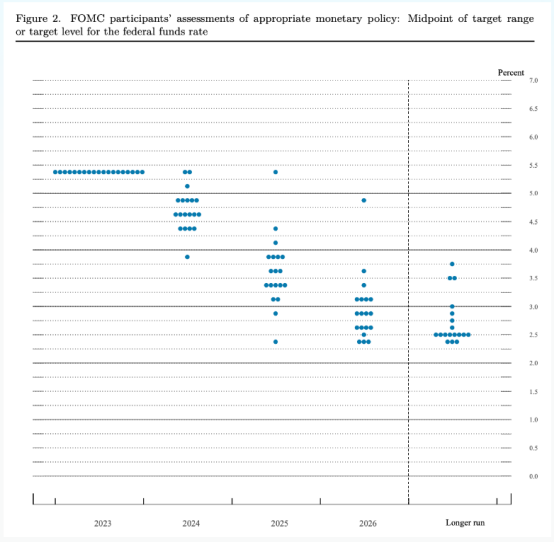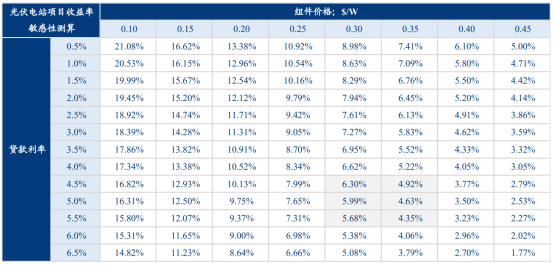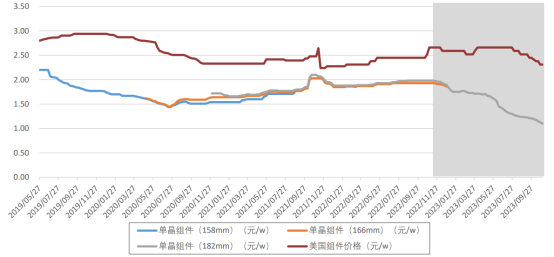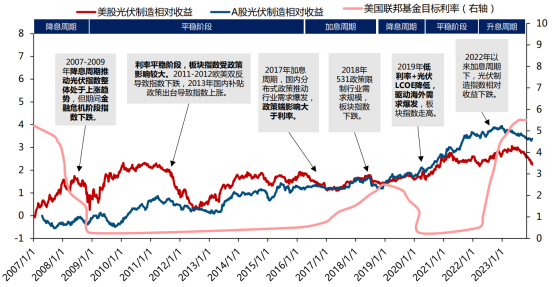Lowering interest rates or stimulating the US photovoltaic market beyond expectations
Time:2023-12-17
Views:471
At 3am Beijing time on December 14th, the Federal Reserve held its final interest rate meeting of the year. At this meeting, the end of the interest rate hike cycle was basically announced. Faced with the established fact that interest rate hikes have ended, the market is more concerned about when to lower interest rates.






According to the latest dot matrix chart from the Federal Reserve‘s FOMC in December, two Federal Reserve officials predicted that interest rates would remain at 5.25% -5.5%, 17 Federal Reserve officials predicted that interest rates would fall below 5.25%, with one person predicting that interest rates would fall below 4%. The median expectation of 4.6% interest rates means that the Federal Reserve may cut interest rates three times next year. The Federal Reserve‘s interest rate cut is also a significant benefit for our photovoltaic industry, such as photovoltaic power plants.
The yield of photovoltaic power plants is influenced by various factors, such as component prices, loan interest rates, and electricity prices. Due to the large investment amount of power station projects, power generation companies often adopt a certain proportion of debt financing, and the yield of photovoltaic power stations is negatively correlated with financing interest rates. Therefore, financing interest rate is one of the important factors in the yield of photovoltaic power stations. The lower the loan interest rate, the higher the yield of photovoltaic power station projects.

According to Huachuang Securities‘ sensitivity calculation table for the yield of photovoltaic power station projects, assuming a loan ratio of 70% and a loan interest rate of 5.5%. When the component price is 0.15 $/W, the loan interest rate increases by 1%, resulting in a decrease of approximately 0.85% -0.95% in yield.


At the beginning of 2022, the price of components in the United States was almost the same as today‘s, around 2.25 yuan/W, and the exchange rate was calculated at 7, which is 0.32 $/W. However, the financing interest rate is completely different. At the beginning of 2022, the US federal funds rate was only 0.25% -0.5%, while currently the US federal funds rate is as high as 5.25% -5.5%. A significant increase of 5 percentage points! According to the photovoltaic power plant yield calculation table, assuming that the component price remains unchanged at 0.3 $/W, when the financing interest rate is 5.5%, the power plant yield is only 5.68%, which is almost the same as the US federal funds rate. In October of this year, the 10-year US Treasury yield, known as the "anchor of global asset pricing," broke through the important 5% mark for the first time during trading, reaching the highest level since 2007. In contrast, the attractiveness of photovoltaic power stations has greatly declined. When the financing interest rate is 0.5%, the power plant yield reaches 8.98%, which is 3.3% higher than the financing interest rate of 5.5%.

Looking back at history, in 2019, the photovoltaic sector index continued to rise due to two major factors: the turning point of industry marketization caused by photovoltaic parity and the decrease in financing costs caused by interest rate cuts, which stimulated an increase in overseas demand. However, history always has astonishing similarities. Nowadays, overcapacity has accelerated the price decline of photovoltaic modules, even falling below some cost prices, driving down the photovoltaic LCOE once again; The Federal Reserve will also begin a new cycle of interest rate cuts in 2024. The combination of two factors will greatly increase the yield of photovoltaic power stations and accelerate their construction.
Looking ahead to 2024, interest rate cuts in Europe and the United States will become the core factor for the unexpected demand in the photovoltaic market in Europe and the United States.
|
Disclaimer: This article is transferred from other platforms and does not represent the views and positions of this site. If there is any infringement or objection, please contact us to delete it. thank you! |











